This condensed briefing note describes the components of the UNHCR WASH Monitoring System in particular why monitor, when to monitor, and what to monitor.
- Tags: WASH Monitoring.
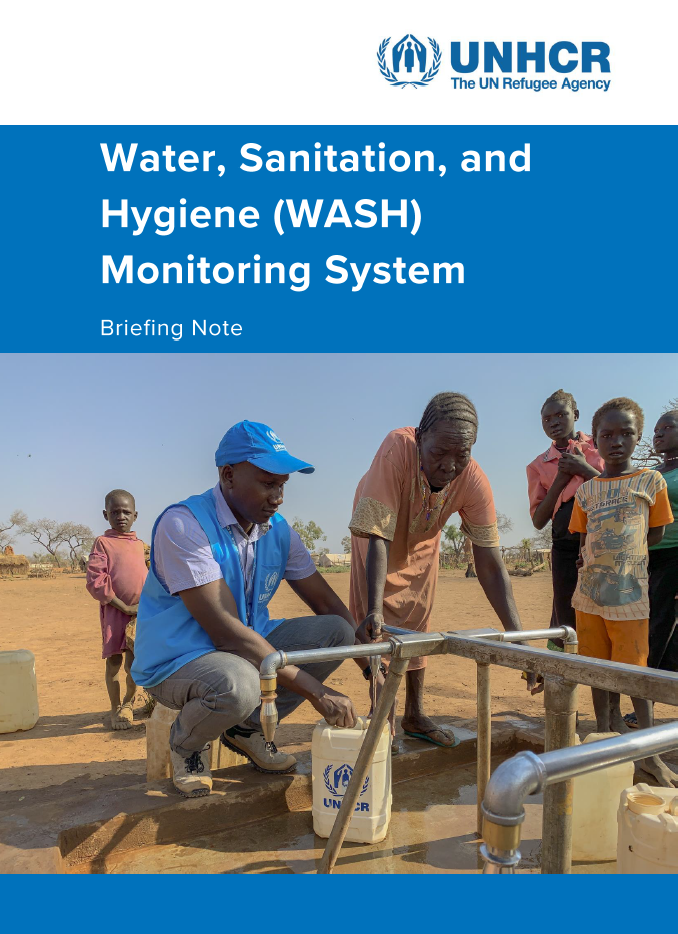
This condensed briefing note describes the components of the UNHCR WASH Monitoring System in particular why monitor, when to monitor, and what to monitor.
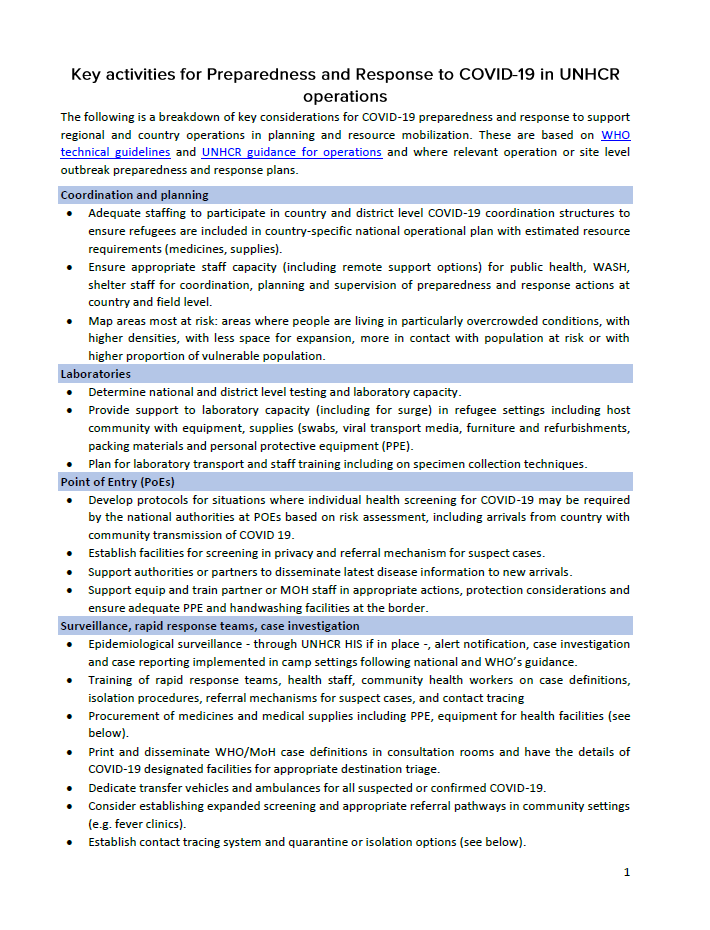
Publisher: UNHCR Year: 2020 Description: The following is a breakdown of key considerations for COVID-19 preparedness and response to support regional and country operations in planning and resource mobilization. These are based on WHO technical guidelines and UNHCR guidance for operations and where relevant operation or site level outbreak preparedness and response plans.
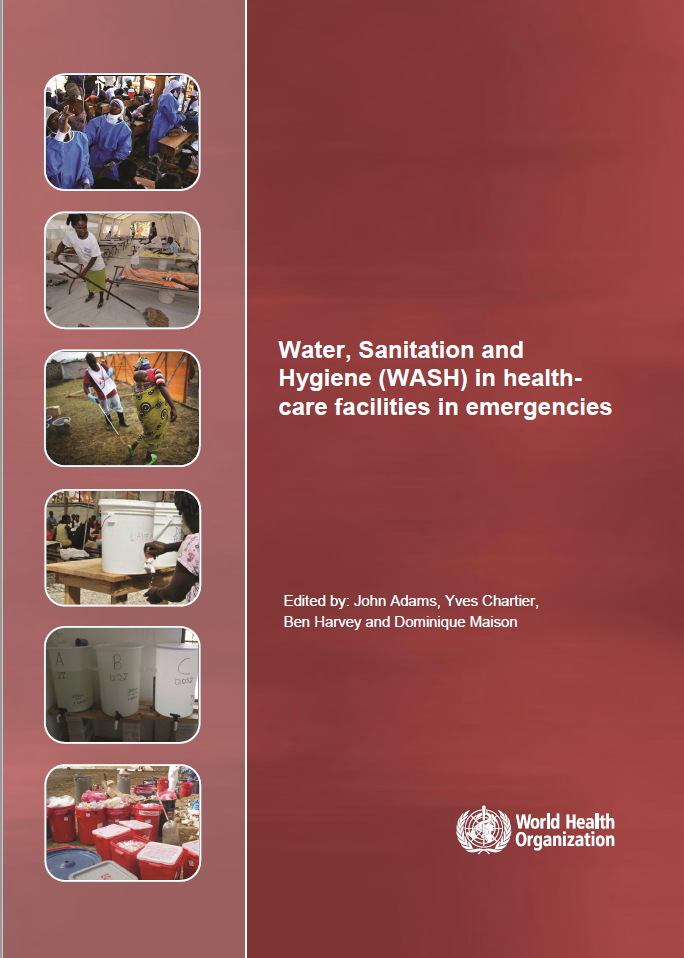
This document contains recommendations for setting minimum Water, Sanitation and Hygiene (WASH) standards in health-care facilities in emergencies in order to provide an adequate and safe level of health-care in addition to minimizing the risk of health-care facility related infection for patients, staff and carers.
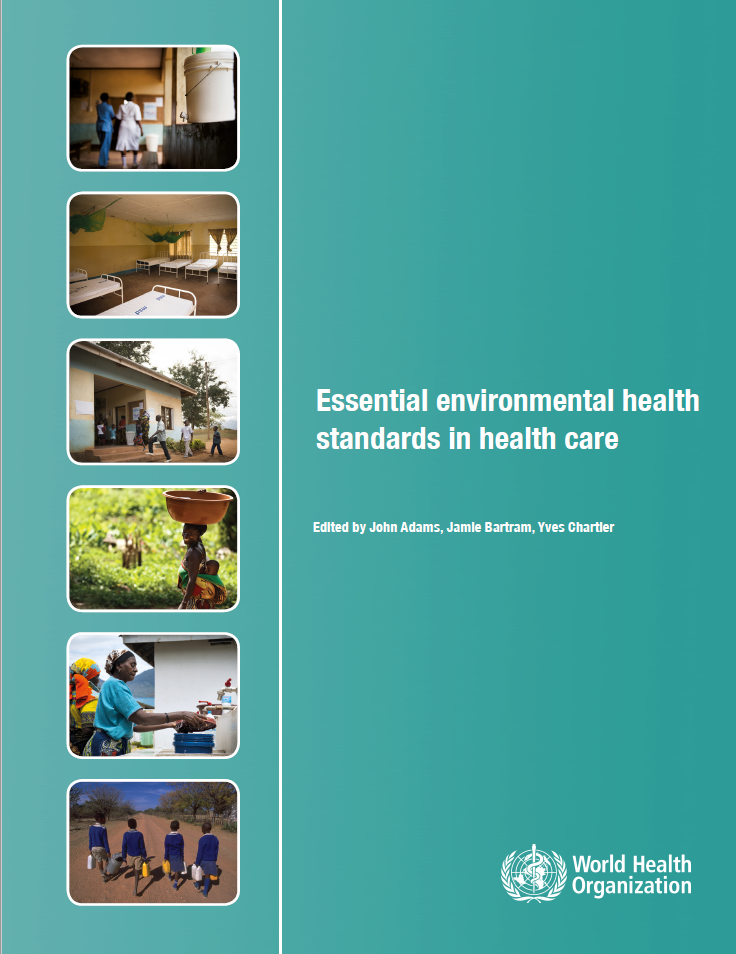
This document provides guidance on essential environmental health standards required for health care in medium- and low-resource countries and support the development and implementation of national policies. These guidelines have been written for use by health managers and planners, architects, urban planners, water and sanitation staff, clinical and nursing staff, carers and other health-care providers, and health promoters.
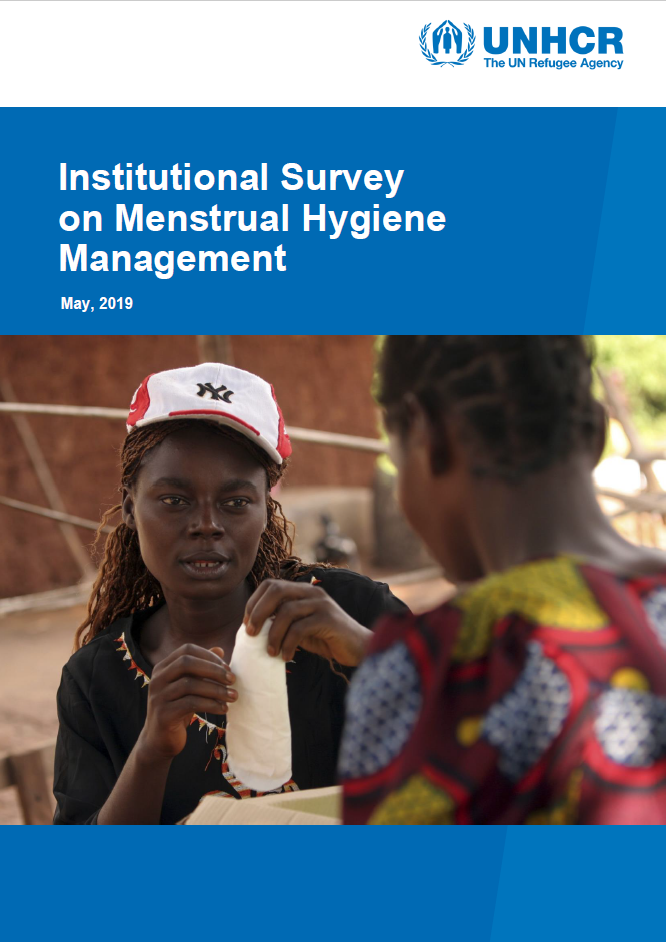
As part of the operationalization of the Age, Gender and Diversity policy, UNHCR is working to better understand how it is addressing the MHM needs of its persons of concern globally and to support country operations in planning for and responding to those needs. To facilitate this, on MHM Day 2018 the Assistant High Commissioner for Operations announced a global survey of MHM programs. This survey was circulated at the end of 2018 and the results are summarized in this document.
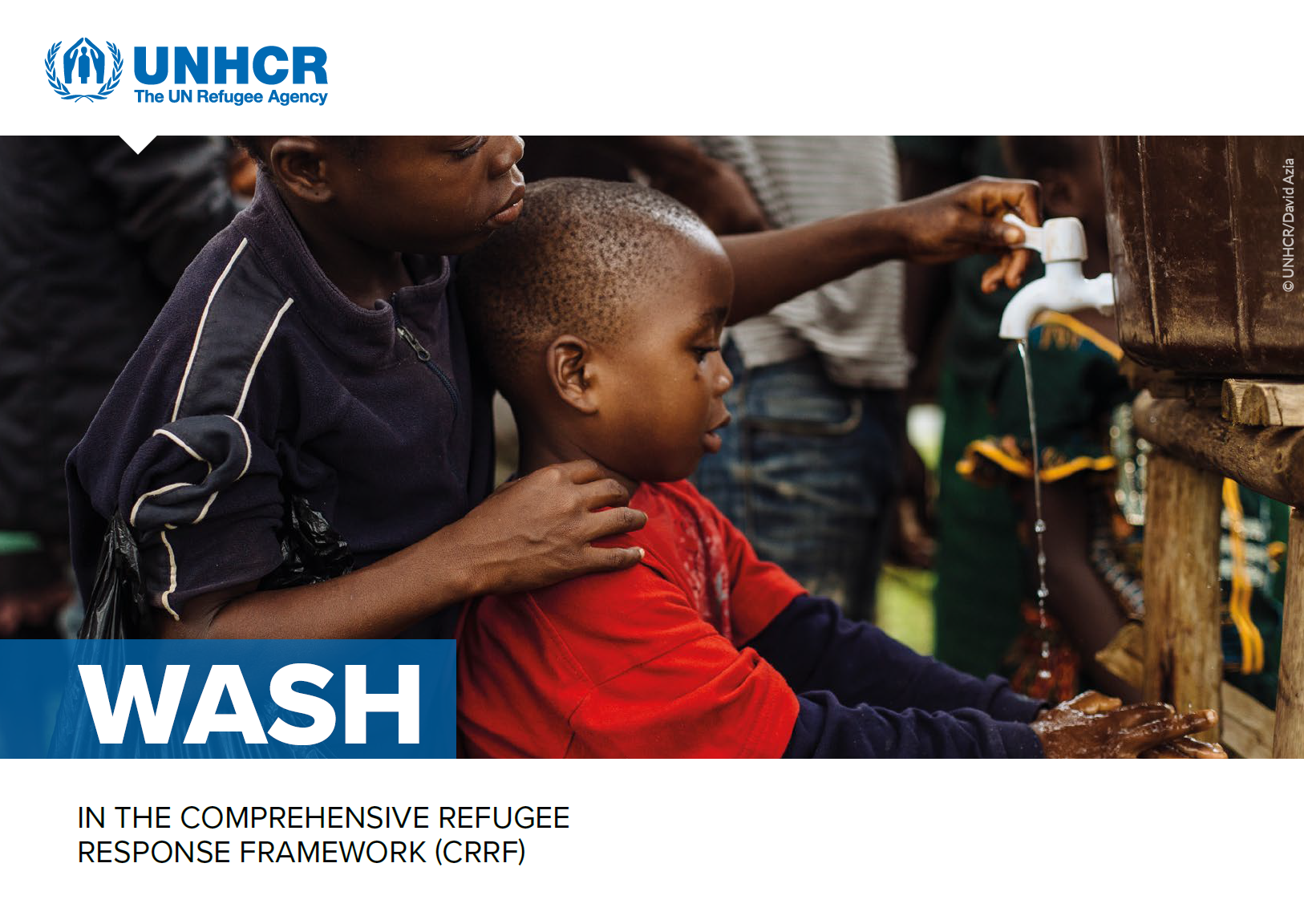
This document describes the objectives and underlying principles of WASH programming in the UNHCR Comprehensive Refugee Response Framework, including steps to be taken, and the role of UNHCR. Guidance is provided for all phases of the relief cycle from preparedness to long-term inclusion.
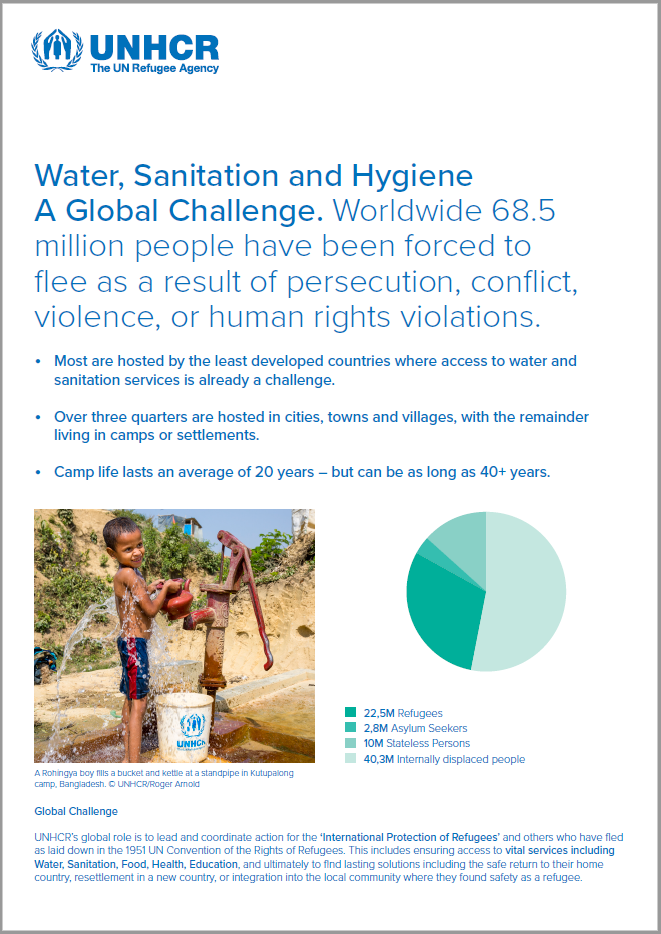
Brief WASH Flyer illustrating the global challenges delivering WASH services for refugees. The flyer touches on UNHCR’s WASH response to the 2030 agenda and the human right to safe water and sanitation.
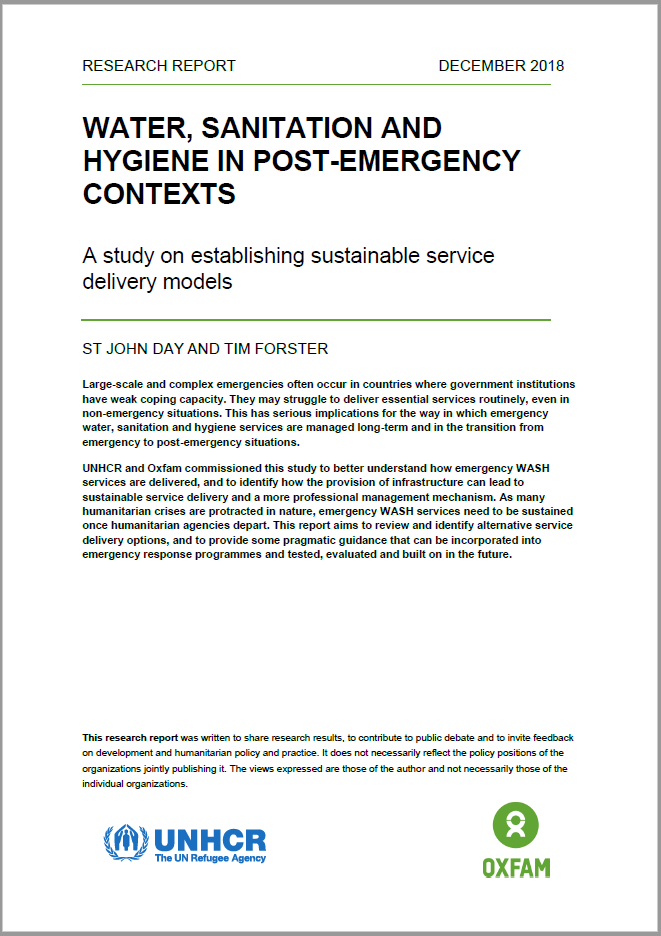
UNHCR and Oxfam commissioned this study to better understand how emergency WASH services are delivered, and to identify how the provision of infrastructure can lead to sustainable service delivery and a more professional management mechanism. As many humanitarian crises are protracted in nature, emergency WASH services need to be sustained once humanitarian agencies depart. This report aims to review and identify alternative service delivery options, and to provide some pragmatic guidance that can be incorporated into emergency response programmes and tested, evaluated and built on in the future.

This booklet contains material and resources to promote forward accountability in WASH programmes.
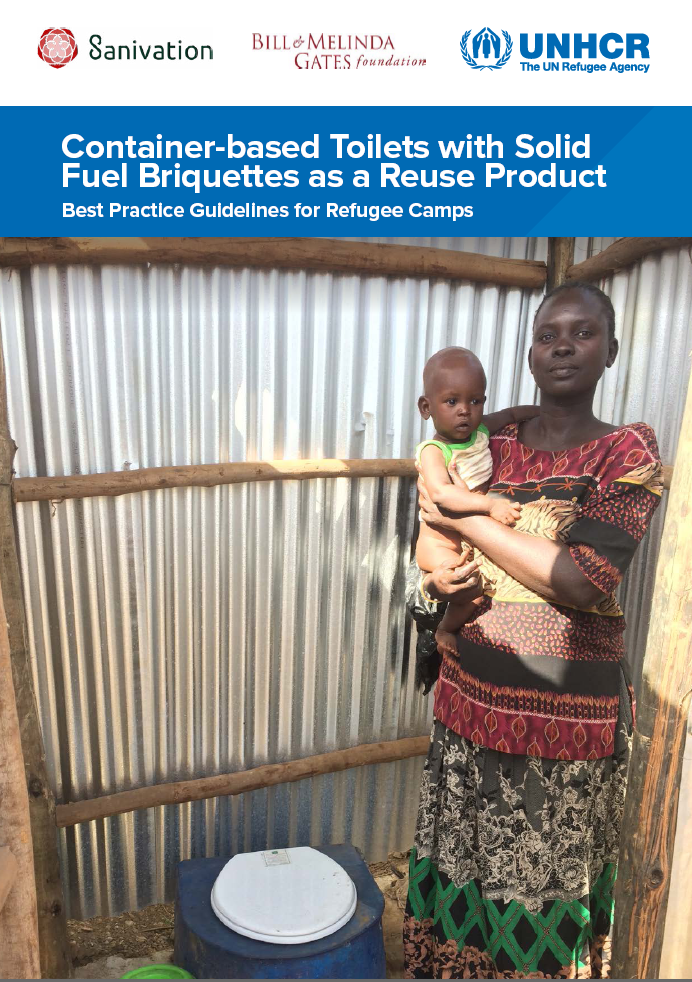
These Best Practice Guidelines were developed by Sanivation, a private sanitation company based in Kenya under UNHCR’s “Waste to Value” Project, funded by the Bill and Melinda Gates Foundation. The Guidelines are based on ongoing operational research in Kakuma Refugee Camp in partnership with UNHCR and the Norwegian Refugee Council (NRC), and will be update at the end of the Project in 2019.